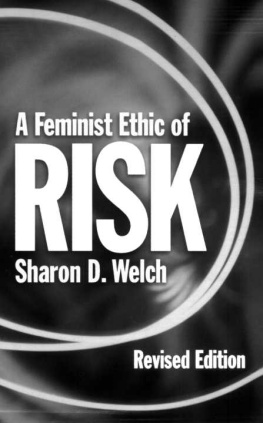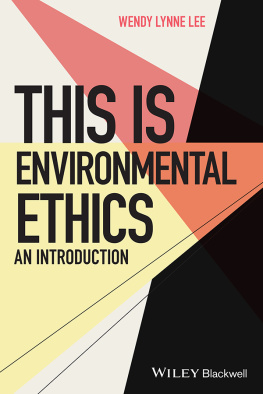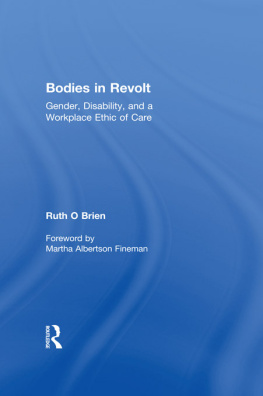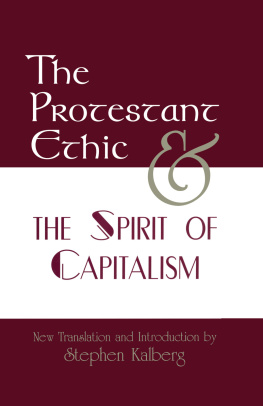Further Acclaim for
A FEMINIST ETHIC OF RISK
"This revised edition of Sharon Welch's A Feminist Ethic of Risk eschews a muddle-headed utopianism for an ethic of risk that recognizes the ambiguities that shape our moral lives and hopes. Welch explores our contemporary political contexts while carefully explaining how she, as a white feminist, draws on womanist methodology to prevent violations of human rights in the face of a collapse of moral vision and political will. Her goal, an admirable and ultimately practical one, is to craft an ethic that helps us learn on a daily basis how to live creatively, responsibly, and compassionately in the present."
Emilie M.Townes
Union Theological Seminary, New York
"Anyone interested in an ethic for life in our troubled world does well to read Welch's A Feminist Ethic of Risk. It retains importance because of its honest and hard-hitting recognition of and appreciation for the risk we embrace when we seek to act in responsible and just ways, taking as our starting premise accountability and openness to others. In this revised edition, Welch's insights into the current sociopolitical and cultural scene, and the complexity of intentions that have shaped our world, only serve further to enhance the importance of this book. My words of advice to those browsing through this book are simple: read it and read it again!"
Anthony B. Pinn, Macalaster College
"Sharon Welch has drunk from the wellsprings of survivors-womanists, Native Americans, white feminists-and offers us this cup of wisdom: what it takes to 'reconstitute the world' (Adrienne Rich). After I read this book I felt more clear-eyed and yet more hopeful than I have in years"
Susan Brooks Thistlethwaite
Chicago Theological Seminary
A Feminist Ethic of
Sharon D. Welch
Revised Edition





For LaVonne
Contents
Acknowledgments
I am deeply grateful to the people whose challenge and support made this revision possible: my colleagues in the religious studies department at the University of Missouri: Jill Raitt, Bob Flanagan, Steve Friesen, Sue Crowley, Paul Johnson, Phillip Clart and Horace Griffin; colleagues with whom I have worked for social justice and racial justice: Helen Neville, Karen Dcbord, Diane Williams, Karen Touzeau, KC Morrison, Mable Grimes, Geta LcScur, Carolyn Dorsey, Shirley Jordan, Jaci Goldberg, Aaron Thompson, Elaine Lawless, Meg Riley, Thandeka, William Jones, Anita Farber-Robertson, Mark Morrison-Reed, Jean Kapuscik, Theophus Smith, Carol Lee Sanchez, Gary Oxenhandler, Monica Naylor, and all the teachers I have worked with in seminars and workshops on multicultural education; my editor at Fortress Press, Michael West; and, most importantly, Jon Poses, whose commitment to world peace is a continual source of joy and inspiration.
Part One
CULTURED DESPAIR
AND THE DEATH OF
THE MORAL IMAGINATION
1
The Ethic of Control
What does it mean to act ethically in a world of expediency, to stand for justice in a world of exploitation, to act with compassion in a world of indifference, cynicism, and despair? How do we work for justice when it seems that only individual wellbeing is attainable, while collective social justice is unreachable?'
When I wrote this book in the 1980s, sexism, racism, economic injustice, and the imminent threat of nuclear war shaped the political horizon.Thc Cold War, and its attendant economic, moral, and psychological costs, seemed as immutable an aspect of our political landscape as the nation-state. With the collapse of the Soviet Union and the rejection of communism by Eastern European nations, our political situation has changed in significant ways. While the unimaginable has occurred-the Cold War has ended-political and economic threats to international and national justice remain. As Barbara Crossette writes of the hopes of many after the end of the Cold War: The world expected peace. It found a new brutality."'
This last decade has seen a truly horrifying explosion of violence in Bosnia, Rwanda, the Sudan, Somalia, Kosovo, and East Timor. We are even threatened by a return to a nuclear arms race as India and Pakistan test nuclear weapons, and the United States considers, once again, developing "Star Wars," a national missile defense system.3 Further, the "triumph of capitalism" has masked but not ameliorated the social injustices that plagued America and has arguably exacerbated them elsewhere.
How do we effectively respond to these threats to social justice, and to further violations of human rights? More importantly, how do we prevent violations of human rights, how do we prevent not only interstate conflict and wars of expansion, but intrastate armed conflict and civil war?
COMMUNICATIVE ETHICS
Threats to a society's collective well-being, justice, and even survival stem from many causes: natural disasters and limitations, the human exploitation of nature and of other people, the shortsightedness and ignorance of humanity, and, oddly enough, particular constructions of ethical responsibility. Our moral and political imagination is shaped by an ethic of control, a construction of agency, responsibility, and goodness which assumes that it is possible to guarantee the efficacy of one's actions. In this chapter, I claim that the root of much middle-class cynicism and despair is a specific construction of the good and of responsible action. I criticize a particular construction of responsibility, the ethic of control, and argue for an alternative construction of responsible action, the ethic of risk. In revising this book for a second edition,, I have made changes that con- textualizc the work in terms of contemporary ethics and political concerns. In order to address our current political challenges, I have omitted the introduction and those portions of chapter 2 that analyzed the dynamics of the nuclear arms race and have replaced them with chapter 1. In this chapter, I describe the contributions of communicative ethics for an understanding of our current political challenges.















